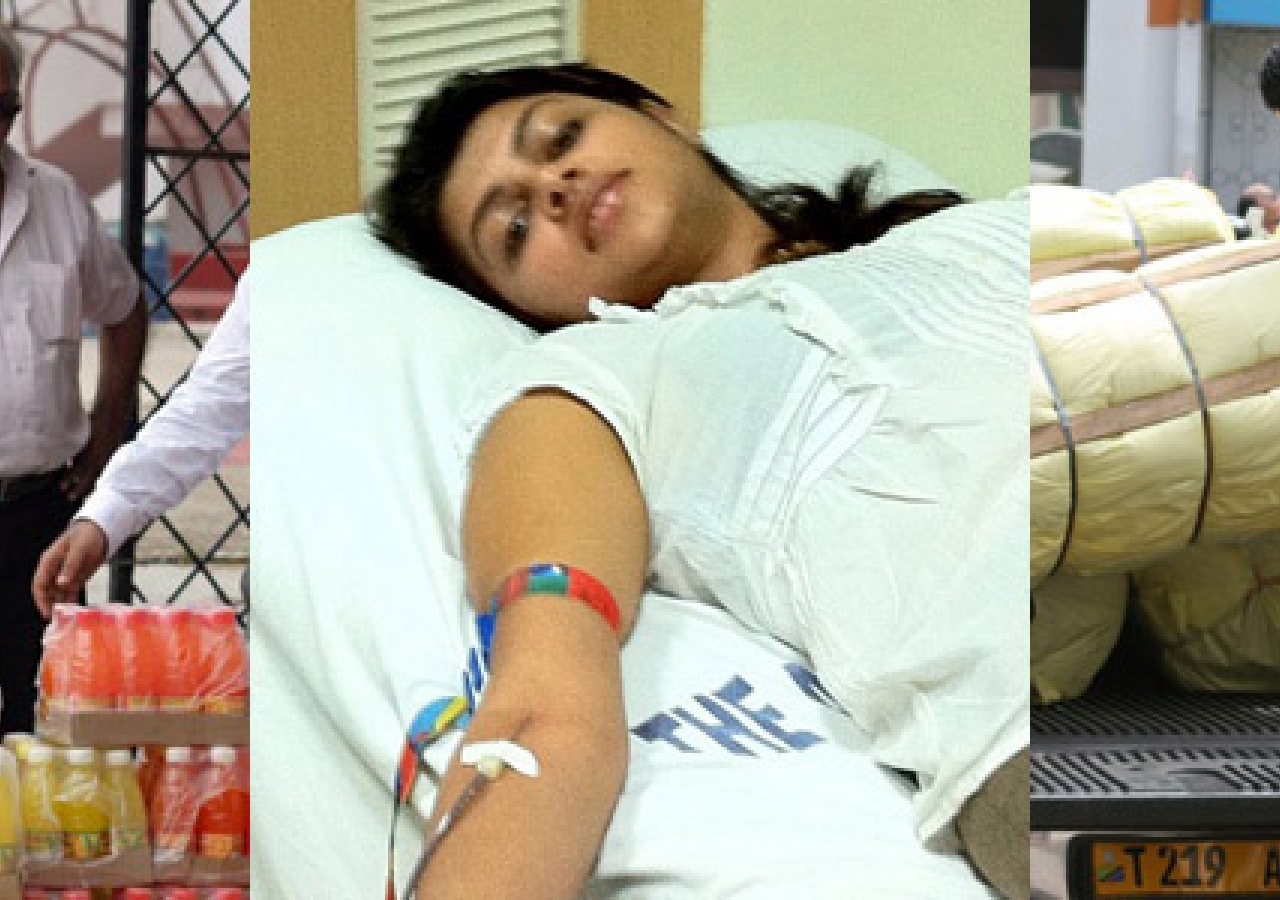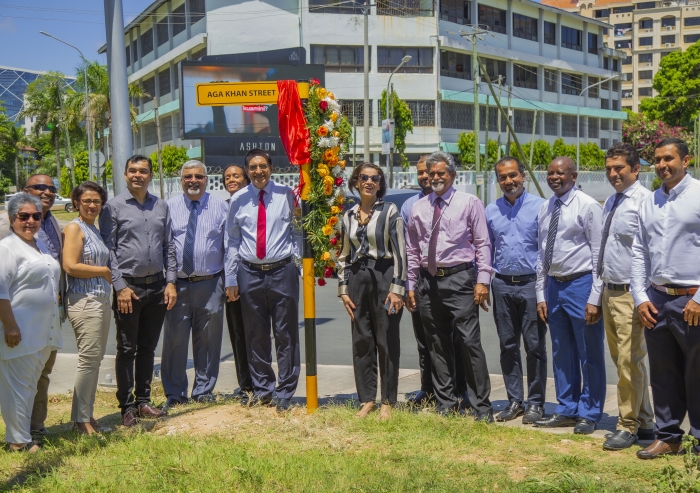Every day, more than 7 000 litres of blood flows through the heart of the average person, but most people hardly give it a second thought. However when calamity strikes, keeping the supply of blood available and flowing is crucial. Blood, after all, is life.
“There is no substitute for human blood,” notes Sulaiman Shahabuddin, Chief Executive Officer of the Aga Khan Hospital, Dar es Salaam. The Tanzanian hospital was recently the site of a blood drive set up by the Ismaili community following a series of explosions that occurred on 16 February at a government storage facility near the Gongo la Mboto suburb on the outskirts of Dar es Salaam. Twenty-seven people were killed in the blast, and more than 500 were injured.
According to the International Federation of Red Cross and Red Crescent Societies, 200 homes were either destroyed or severely damaged as a result of the explosions. The immediate concern was to provide first aid and relief items to the approximate 1 000 members of those families that were displaced in Gongo la Mboto and nearby districts of Majohe, Pugu, Kigogo Fresh, Kipawa and Kitunda.
When the Government of Tanzania requested support for the victims of the disaster, the Ismailis in the area were eager to help said Aitmadi Jehangir Kermali Bhaloo, President of the Ismaili Council for Tanzania.
“The ethos of compassion, empathy and generosity is very strong in our community,” said President Bhaloo. “The community is always in the forefront whenever required, particularly during times of stress.”
Within two days of the incident, the Ismaili Council for Tanzania had partnered with the Aga Khan Hospital to organise the blood drive. In addition, members of the Jamat donated TZS 4 million worth of items, including 200 blankets, 200 mosquito nets, 111 cartons of water, 100 cartons of fruit juices and 50 cartons of glucose biscuits.
Zebun Amirali Jamal Esmail, with the local Ismaili Volunteer Corps, was one of the volunteers who assisted with the distribution of items in the days following the explosions. “We were able to provide some basic necessities such as blankets, clothes and refreshments, as well as comfort the hospitalised victims,” she explained. “We hope that our contribution eased their worries and provided the patients some relief and hope.”
Shahabuddin says that providing assistance at a time of need is the responsibility of all citizens. “Blood donation is one the most valuable gifts we can give, especially to those individuals who are most in need. It is ultimately about saving lives.”
A good supply of safe blood is crucial to every population, but Shahabuddin notes that unfortunately blood donation in Tanzania, tends to be driven by tragic incidents, such as the recent explosions.
Many countries remain dependent on donations by family or friends of patients, and in some countries blood donors still receive payment. Yet international evidence shows that voluntary unpaid donors are the foundation of a safe blood supply because they are least likely to transmit potentially life-threatening infections, such as HIV and Hepatitis viruses.
In Tanzania, PEPFAR (the US President's Emergency Plan for AIDS Relief) has provided support to the National Blood Transfusion Service (NBTS) to expand its services across the country in recent years. The National Blood Safety Programme was established in 2004 with support from the World Health Organization (WHO) and the US-based Centers for Disease Control and Protection (CDC), to ensure availability of blood for those in need. One of the key tasks in Tanzania therefore is not only to increase the safety and availability of blood, but also to raise the number of voluntary donors.
The CDC continues to monitor the progress of the programme and the most recent results show that a total of 109 471 whole units of blood were collected in Tanzania, a country whose population is now upwards of 40 million. This translates to approximately 2.7 whole blood units per 1 000 population, much less than the estimated 10 – 20 units required annually to meet the baseline clinical demand.
The Ministry of Health and Social Welfare of Tanzania and the NBTS are working hard to educate Tanzanians about giving blood and the science behind the process. The hope is that youth especially will be encouraged to become life-long donors. But Tanzania is not the only country lacking a sufficient supply of safe blood. According to WHO, there is a chronic need around the world.
WHO states in their 2010 statistics that about 50 per cent of the world's blood donations come from transitional and developing countries, even though those countries are home to more than 80 per cent of the global population. The organisation estimates that if one per cent of each country's population donated blood, there would be a sufficient supply to meet the basic needs.
The staggering statistics, which have not changed significantly over the past few years, led WHO member states at the 58th World Health Assembly in 2005 to declare unanimously their commitment and support for voluntary blood donation, and designated World Blood Donor Day as an annual global event.
This year's World Blood Donor Day takes place on 14 June. Countries worldwide will celebrate with events to raise awareness of the need for safe blood and blood products and to recognise the efforts of voluntary unpaid blood donors.
The theme for 2011 will be More blood More life, which, in light of the recent events in Tanzania as well as the earthquake and tsunami in Japan, reinforces the urgent and chronic need for people all over the world to become life-savers by donating the free gift of blood on a regular and ongoing basis.








